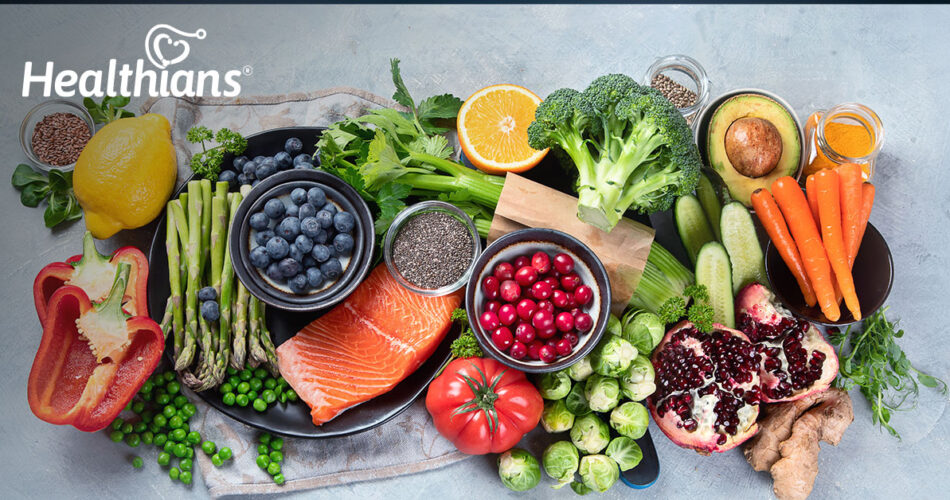Contributed by: Healthians Team
Introduction
Sometimes characterised as a silent killer, one of the most troubling things about high cholesterol is that you won’t know you have it until you visit your doctor.
There are no early warning signs in a patient. Left unchecked over a long period of time, high cholesterol puts you at greater risk for a multitude of health problems, including heart attacks and strokes.
High cholesterol can cause clogged arteries, which, regrettably, can be very dangerous to your health.
Low-density lipoprotein (LDL), also known as “bad” cholesterol, can accumulate in the walls of your arteries and create plaque if the level of LDL cholesterol in your blood becomes too high.
A blood clot may form if one of these plaques ruptures, obstructing blood flow and resulting in a heart attack or stroke.
If you have high cholesterol, your doctor will probably suggest that you make dietary modifications.
The good news is that for many people with high cholesterol, dietary adjustments can help lower cholesterol levels, even if it may occasionally be inherited.
High LDL levels are often the result of a diet rich in saturated fats like beef, butter, whole-milk dairy products or trans fats frequently found in highly processed foods.
The most significant impact on our cholesterol levels comes from consuming foods that help lower your LDL.
In this following list, we will look at some of the foods that can impact your cholesterol level and your overall health in a positive way!
Beans
Your health will benefit greatly from including beans in your diet in a number of ways. The first is that beans can be substituted for foods with a lot of saturated fat because they are a rich source of protein.
Second, soluble fibre is found in large quantities in beans, which can lower LDL levels and boost heart health in people with high levels of cholesterol.
Orange juice
Data has shown that fresh-squeezed orange juice without added sugar can reduce total cholesterol, as well as LDL cholesterol.
Also, the vitamin C you’ll gain from drinking orange juice may improve your cholesterol profile and also increase the ‘good’ HDL cholesterol.
Nuts
Nuts are a great source of soluble fibre, unsaturated fats, and protein. They discourage high LDL cholesterol levels when used in favour of animal products that contain saturated fats, and their soluble fibre may aid in LDL reduction.
There is proof that nuts can reduce your risk of developing heart disease. Because nuts are so high in calories, you should keep serving sizes to no more than one ounce, and make sure the type you choose has no salt or sugar added.
Olive oil
Most plant-based oils are a good source of heart-healthy fats. Olive oil, in particular, is an excellent heart-healthy oil, one that can replace unhealthy fats and promotes good cardiovascular health.
Research has proved that extra-virgin olive oil contains ample heart-healthy unsaturated fats, so it’s beneficial to eat them regularly.
Seeds
Seeds like chia, flax, pumpkin, and sunflower seeds are often overlooked as a source of heart-healthy fats.
However, these seeds are not only loaded with fibre, but they also have unsaturated fats.
Apples
Soluble fibre from apples is a great source for reducing LDL cholesterol. According to research, consuming 550 gms of apples daily can help decrease cholesterol levels.
You should leave the peel on since apple peels contain the majority of the fibre.
Avocados
Avocado has a great balance of monounsaturated and polyunsaturated fats. Even though monounsaturated and polyunsaturated fats are both excellent at decreasing cholesterol, consuming too many of just the latter can also lower your good [HDL] cholesterol.
Aiming for a balance of the two types of unsaturated fats is what you should do, and you can achieve this by including a range of heart-healthy fats in your diet.
Fatty fish
Fatty fish helps to keep harmful cholesterol out of the arteries and enhances heart health. reduce your cholesterol in a number of different ways.
To begin with, fatty fish can be utilised in place of other protein sources that are high in saturated fats.
A healthy combination of unsaturated fats, particularly omega-3 fatty acids, which have been demonstrated to lower the risk of heart attack and stroke, can be found in fatty fish.
Final thoughts
Cholesterol plays a very important role in the body but can cause clogged arteries and heart disease when it gets out of control.
If your cholesterol is out of balance, dietary interventions are the first line of treatment.
It is recommended to have your cholesterol levels evaluated every five years. All that’s needed is a quick blood test following an overnight fast.




